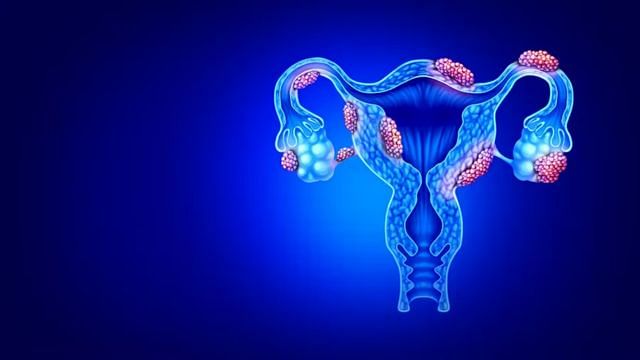Healthy Lifestyle Linked to Sharper Retinal Health, Lower AMD and RVO Risk
24 Jul 2025 • In a study of ~380,000 adults, adhering to a healthy lifestyle—regular activity, balanced diet, good sleep, healthy weight, non-smoking, and moderate alcohol use—reduced the risk of age-related macular degeneration (AMD) by 29% and retinal vascular occlusion (RVO) by 25%.
Those with top lifestyle scores (5–6) had healthier retinal microvasculature, including better artery-to-vein ratios and thicker neural layers, versus those with poor scores (0–1).
Lower systemic inflammation explained up to 27% of these protective effects.
Source: BMJ Journals | Read Full Story
Accelerated Biological Aging Associated With 35% Higher Endometriosis Risk
24 Jul 2025 • A study of 46,371 women followed for a median of 12.5 years found that accelerated biological aging, measured by Phenotypic Age (PhenoAge), raised the risk of developing endometriosis by 35% versus peers aging normally.
High BMI further amplified this risk, though no significant subgroup interactions emerged.
Researchers suggest targeting biological aging as a modifiable factor for endometriosis prevention, emphasizing the value of maintaining a “biologically younger” profile in reproductive-age women.
Source: EJOG | Read Full Story
Low Nighttime Blood Pressure Signals Higher Cardiac Risk in Heart Failure Patients
24 Jul 2025 • In heart failure (HF) patients, low nighttime systolic blood pressure (SBP) signals higher risk for adverse outcomes.
Using continuous pulse transit time monitoring, researchers followed patients for a median of 3 years (1,083 days), grouping SBP into tertiles: high (136 mm Hg), middle (117 mm Hg), and low (100 mm Hg).
Those in the lowest tertile faced the highest risk of HF hospitalization or cardiac death, with multivariate analysis showing over double the risk versus the highest group (HR 2.10).
Overly low nighttime SBP may be a key prognostic marker in HF care.
Source: AHA|ASA Journals | Read Full Story
Renal Trauma Nearly Doubles Risk of New-Onset Hypertension
23 Jul 2025 • An analysis of 7,882 patients shows renal trauma (rT) nearly doubles new-onset hypertension (HTN) risk.
HTN developed in 35% of 4,703 rT patients vs 21% of matched controls (HR 1.8).
Risk was highest after angioembolization (HR 3.4) or nephrectomy (HR 2.4). Older age, female sex, comorbidities, diabetes, and lifestyle factors further elevated risk.
Findings highlight the need for long-term BP monitoring and counseling in rT survivors, especially those undergoing invasive interventions.
Source: Frontiers | Read Full Story
Retinal Vascular Disease in Pregnancy Linked to Adverse Outcomes
23 Jul 2025 • A multicenter study found retinal vascular disease in 35% of at-risk pregnancies, mainly diabetic retinopathy (73%), followed by central serous chorioretinopathy (14%), hypertensive retinopathy (11%), and retinal vein occlusion (5%).
Among those with diabetic retinopathy, 28% required treatment during or after pregnancy.
Affected women faced higher adverse outcomes, with preterm birth (54% vs 25%) and C-section rates (78% vs 48%) sharply elevated, highlighting the need for close interdisciplinary monitoring in such pregnancies.
Source: Retina | Read Full Story
Autoimmune Liver Diseases and Diabetes: A Two-Way Genetic Connection Uncovered
23 Jul 2025 • A large study uncovers a bidirectional link between autoimmune liver diseases (AILD) and diabetes.
Key Findings:
- Genetically predicted primary biliary cholangitis (PBC) and primary sclerosing cholangitis (PSC) raised type 1 diabetes (T1DM) risk (OR 1.41, 1.39), while PBC modestly increased type 2 diabetes (T2DM) risk (OR 1.03).
- Conversely, T1DM elevated risks of PBC (OR 1.28), PSC (1.27), and autoimmune hepatitis (1.13).
The PBC–T2DM association weakened after BMI and IBD adjustment, stressing shared pathways and the need for diabetes screening in AILD patients.
Source: Wiley Online Library | Read Full Story
Breast Surgery Safe in Pregnant and Postpartum Women, Study Finds
22 Jul 2025 • A study of pregnant and postpartum women undergoing oncologic breast surgery reported low 90-day complication rates (12.2%) despite high-risk profiles—66.7% had high-grade, 87.2% stage II–III invasive ductal carcinoma, and 59.8% received neoadjuvant chemotherapy.
Most (72%) underwent mastectomy. Surgical site infection (6.1%) and seromas (4.9%) were most common; no milk fistulas occurred.
Lactational changes (75% of patients) did not raise complication risk, confirming surgery is safe with rates comparable to the general population.
Source: Springer Nature Link | Read Full Story
Sarcopenia Significantly Worsens Outcomes in Heart Failure Patients
22 Jul 2025 • Analyzing 5,713 heart failure (HF) patients reveals that sarcopenia substantially elevates the risk of poor clinical outcomes.
Patients with sarcopenia faced a 62% higher overall risk of adverse outcomes (HR 1.62), including nearly double the risk of all-cause mortality (HR 1.89) and a 37% greater risk of major cardiovascular events (HR 1.37).
The findings highlight sarcopenia as a critical prognostic factor in HF and underscore the need for routine, multidimensional screening to guide early interventions and improve patient outcomes.
Source: Frontiers | Read Full Story
Remnant Cholesterol in Early Pregnancy Signals Elevated Gestational Diabetes Risk
22 Jul 2025 • A study of 1,361 pregnant women found remnant cholesterol (RC) to be a strong early predictor of gestational diabetes (GDM), independent of triglycerides (TG).
Key Findings:
- GDM occurred in 25.9%, with each unit rise in RC raising risk by 5% (OR 1.05).
- Women in the highest RC quartile had over double the risk (OR 2.27), showing a clear dose–response trend.
- High RC predicted GDM even with low TG, while high TG alone was not significant. RC outperformed traditional lipids (AUC 0.687) and was strongly associated with fasting hyperglycemia-driven GDM, highlighting its value for early screening.
Source: BMC Pregnancy and Childbirth | Read Full Story
Atopic Dermatitis Linked to Elevated Stroke Risk, Especially in Men
21 Jul 2025 • Atopic dermatitis (AD) is independently associated with a significantly higher risk of stroke.
The pooled analysis found a 27% increased risk overall (OR = 1.27), with men experiencing a 31% elevated risk (OR = 1.31). The association was particularly pronounced for ischemic stroke (OR = 1.14) and strengthened with greater AD severity.
These findings underscore the need for heightened vascular risk assessment and proactive management in patients with moderate-to-severe AD, especially men, to mitigate cerebrovascular events.
Source: Frontiers | Read Full Story

